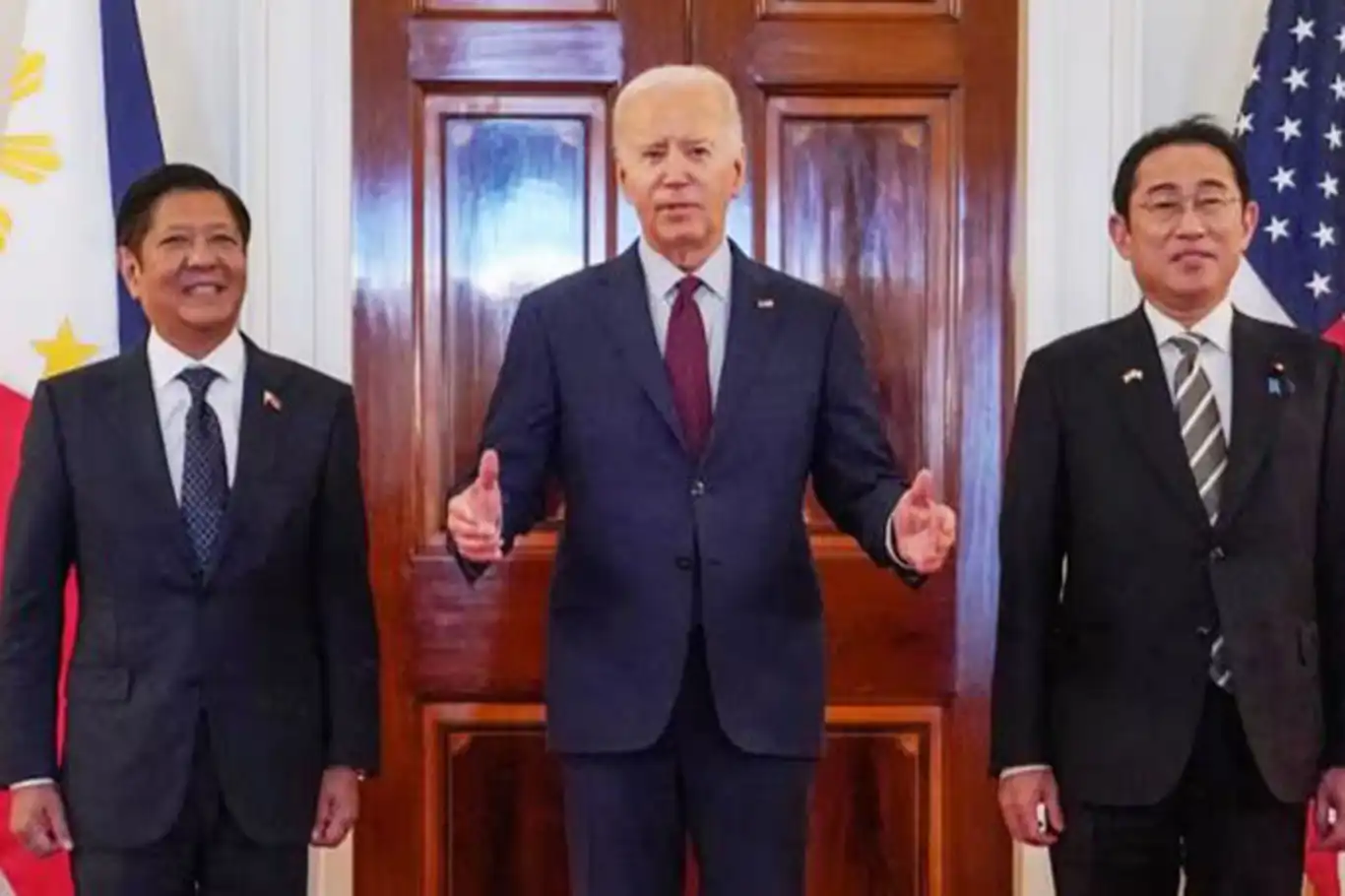Japan, Philippines, and U.S. leaders unveil joint vision for Indo-Pacific cooperation


In a historic summit held in Washington, the leaders of Japan, the Philippines, and the United States have released a joint vision statement outlining their shared commitment to a free and open Indo-Pacific region.
The summit marks the first meeting of its kind between the three nations, reflecting their deepening partnership and cooperation.
The Indo-Pacific region has become a hotspot for geopolitical competition, with China's aggressive territorial claims in the South China Sea causing particular concern. The joint statement from the summit explicitly criticized China's "dangerous and aggressive behavior," highlighting actions like the militarization of disputed islands and obstruction of legitimate resource exploration activities by other countries.
The leaders specifically condemned China's interference with Philippine vessels exercising freedom of navigation near Second Thomas Shoal and called for adherence to the 2016 arbitral ruling that favored the Philippines. This strong stance sends a clear message of support for regional sovereignty and adherence to international law.
Beyond security concerns, the summit emphasized economic collaboration. A key highlight was the launch of the "Luzon Corridor Initiative," a joint effort to accelerate investments in critical infrastructure projects across key Philippine cities. This initiative falls under the umbrella of the broader Partnership for Global Infrastructure and Investment (PGII) and the Indo-Pacific Economic Framework for Prosperity (IPEF). The Luzon Corridor Initiative signifies a commitment to building resilient and sustainable infrastructure in the Philippines, fostering economic growth and regional connectivity.
Recognizing the importance of technological advancement and environmental sustainability, the leaders announced a new semiconductor workforce development program aimed at strengthening supply chains across all three nations. Additionally, they pledged to expand cooperation on clean energy technologies and critical minerals, crucial components of the clean energy transition. These initiatives showcase a collective commitment to technological innovation and a sustainable future.
The summit wasn't limited to economic cooperation. The leaders established a trilateral maritime dialogue to enhance coordination on maritime security issues, a crucial step towards ensuring a free and open Indo-Pacific. Commitments were made to conduct joint military exercises and training activities, further solidifying their combined defense capabilities. These measures demonstrate a united front in safeguarding regional security and deterring potential threats.
The leaders reaffirmed their commitment to the denuclearization of the Korean Peninsula, condemning North Korea's recent missile launches. Additionally, they expressed unwavering support for Ukraine's sovereignty and territorial integrity in the face of Russia's invasion. These pronouncements highlight the summit's focus on promoting regional and global stability.
The historic summit in Washington D.C. marks a significant milestone in the relationship between Japan, the US, and the Philippines. The leaders forged a stronger trilateral partnership built on shared values of democracy, freedom, and the rule of law. This summit's outcomes, encompassing economic cooperation, enhanced security measures, and a commitment to addressing global challenges, pave the way for a more stable and prosperous Indo-Pacific region. The newly established mechanisms for communication and collaboration ensure this partnership will endure beyond the summit itself, fostering a more secure and prosperous future for all three nations. (ILKHA)
LEGAL WARNING: All rights of the published news, photos and videos are reserved by İlke Haber Ajansı Basın Yayın San. Trade A.Ş. Under no circumstances can all or part of the news, photos and videos be used without a written contract or subscription.
Santorini, one of Greece’s most iconic volcanic islands, is experiencing an unusual series of earthquakes that have prompted emergency responses and safety precautions across the region.
Israeli occupation forces conducted raids late Monday across various areas of the occupied West Bank, kidnaping 15 Palestinians, including a 15-year-old boy.
World Health Organization (WHO) Director-General Tedros Adhanom Ghebreyesus has emphasized the urgent need to address Gaza’s health crisis, calling for sustained medical support and a permanent ceasefire to ensure long-term stability in the region.
The Islamic Emirate of Afghanistan has extended its condolences to the leadership of Hamas and the Palestinian people following the deaths of senior figures in the Hamas military wing, including Mohammad al-Deif.